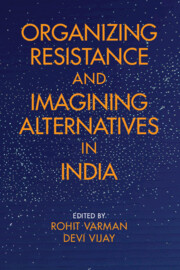Book contents
9 - Exploring the State within the Bottom-of-the-Pyramid (BOP) Terrain
Published online by Cambridge University Press: 30 June 2022
Summary
The philosopher is the spokes-person … for a question. To insist on this means to understand what really matters, in the question, is the enchantment of the question. To insist on the question is to understand this difficult notion: that one must inhabit the question, its peculiar enchantment, without overcoming or wanting to overcome it in the answer.
—Carlos Sini (2009)Be it multinational corporations like Unilever, S. C. Johnson and Sons, or Procter and Gamble looking for the next growth opportunity; national governments searching for solutions to the intractable issue of poverty; non-governmental organizations (NGOs) like Oxfam working with poorer communities around the world; international organizations like the United Nations Development Programme or the World Bank seeking to mitigate economic and social deprivation in the developing world – market-based solutions to poverty eradication has emerged as a viable alternative for dealing with the challenge of global poverty (Prahalad, 2006; Karnani, 2007; Hart, 2005; Roy 2010). In recent years, along with microenterprise, asset-building, social enterprise, the bottom- or base-of-the-pyramid approach has emerged at the centre of business–poverty discourses (Conney and Shanks, 2010). Propounded by C. K. Prahalad (1941–2010), management professor and consultant (along with co-author Stuart Hart, 2002), the bottom-of-the-pyramid (BOP) approach popularized the idea of large private-sector participation in poverty alleviation – a move that aimed to reconstitute the relationship between the economic calculus of profit-making with the more socially committed goals of poverty eradication. In recent years, I have engaged with the BOP proposition from a conceptual and theoretical standpoint to illuminate what has, by and large, remained undiscussed and unremarked in the BOP scholarship, that is, the dominant assumptions and presuppositions that underwrite the BOP programmatic (Chatterjee, 2014; 2016). In the present chapter, I continue my critical engagement with the BOP proposition by examining how and to what effect the state is reimagined and reconfigured within its horizon of thinking. Where, at one level, the chapter reflects upon, clarifies, and critiques the BOP proposition insofar as the question of state is concerned, at another level, using the BOP programme as a vantage point, it offers insights into the generalized condition of the state under neoliberal capitalism.
The present chapter is based on a close reading of the BOP proposition (among others, Prahalad, 2006; Prahalad and Hart, 2002; and Hammond and Prahalad, 2004).
- Type
- Chapter
- Information
- Organizing Resistance and Imagining Alternatives in India , pp. 289 - 317Publisher: Cambridge University PressPrint publication year: 2022

